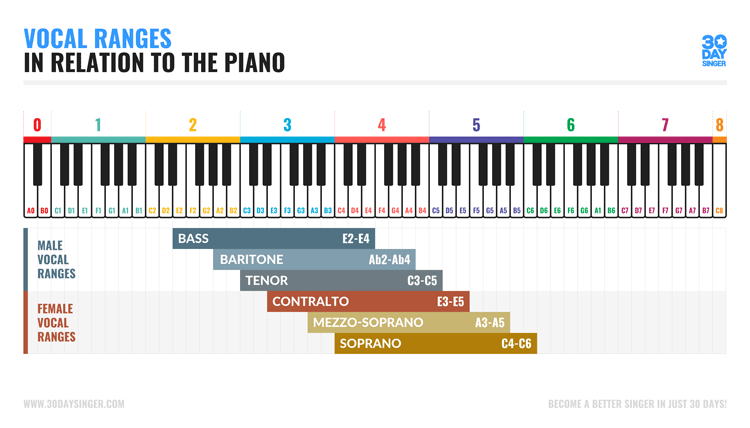Learn To Sing
December 14, 2023
Learning to sing is a journey that many embark on, whether for the sheer joy of it or with dreams of hitting the big stage.
When you learn to sing, it will be just as fulfilling wherever you apply your new skill.
So, let's dive into the world of vocal exploration and singing lessons, and discover how you can learn to sing like a pro.
Why Learn to Sing?
First things first, why bother learning to sing?
Well, besides the undeniable fact that it's just plain fun, singing has a plethora of benefits.
It's a fantastic stress-reliever, an excellent way to express emotions, and can even improve your mood.
Plus, who can deny the magic of creating beautiful music with nothing but the power of your voice?
Learning to sing also opens up a world of musical possibilities.
Whether you're into pop, rock, jazz, or classical, being able to carry a tune gives you the freedom to explore different genres and styles.
Learn to Sing: The Basics
Alright, so you've decided to take the plunge and learn to sing.
Where to begin?
Well, the good news is that everyone can learn to sing; it's not just a gift for the chosen few.
Start by finding your vocal range – are you a soprano, alto, tenor, or bass?

No worries if you're not sure; experimenting with different pitches will help you discover your sweet spot.
Go to a piano and plunk out different notes. Find the highest and lowest note you can sing comfortably.
There you go, that's your range!
Next up, breathing.
Yeah, I know, we do it all the time, right?
But when it comes to singing, mastering the art of controlled breathing is a game-changer.
Proper breath support is the foundation of a strong, confident voice.
So, take a deep breath (literally) and let's dive into the world of diaphragmatic breathing.
Diaphragmatic Breathing: The Secret Sauce
Learning to sing is like building a house, and diaphragmatic breathing is the rock-solid foundation.
Imagine your diaphragm as a trampoline – when you breathe in, it flattens, and when you breathe out, it rises.
This type of breathing engages your diaphragm, allowing you to take in more air and maintain better control over your voice.
To practice diaphragmatic breathing, lie down and place a hand on your chest and another on your stomach.
As you inhale, focus on expanding your stomach rather than your chest.
This ensures that you're using your diaphragm to its full potential.
Repeat this exercise until it becomes second nature – your voice will thank you later!
Pitch Perfect, Not Perfect Pitch
Now that you've got the breathing down, it's time to tackle pitch.
Ever tried hitting a high note only to sound like a squeaky door?
We've all been there.
The key is to start within your vocal range and gradually expand your comfort zone.
A handy trick to improve your pitch is to sing scales.
Start with a simple "do-re-mi" and work your way up and down the scale.
If you can't be at a piano when doing this, you can use a pitch pipe!
This helps train your ear, improves pitch accuracy, and gradually extends your vocal range.
Don't worry if you don't sound like a Broadway star on day one – it's all about progress, not perfection.
Warm-Up: The Vocal Gym Session
Just like you wouldn't run a marathon without stretching, you shouldn't sing without warming up your vocal cords.
Think of vocal warm ups as a gym session for your voice.
Start with gentle humming, sirens, or lip trills to wake up those vocal muscles.
Gradually increase the intensity and pitch to avoid straining your voice.
Remember, consistency is key.
Make warm-ups a part of your singing routine, and your voice will become more flexible and resilient over time.
And trust me, your vocal cords will appreciate the extra TLC.
Learn to Sing: The Power of Practice
Now that you've got the basics down, it's time to address the elephant in the room – practice.
Learning to sing is not a one-time deal; it's an ongoing journey of self-discovery and improvement.
Set aside dedicated time each day to hone your craft.
Experiment with different genres and styles to keep things interesting.
Join a choir or a singing group to gain valuable experience and feedback.
Remember, even the most accomplished singers started as beginners.
Embrace the learning process, and you'll be amazed at the progress you can make.
The Role of Vocal Exercises
Just like any skill, singing benefits from targeted exercises.
Vocal exercises help strengthen your voice, improve control, and enhance overall performance.
From scales and arpeggios to vibrato drills, incorporating these exercises into your routine will undoubtedly level up your singing game.
Think of vocal exercises as your musical workout routine.
They build endurance, enhance flexibility, and refine your technique.
And the best part?
You can do them anywhere – in the car, while doing chores, or even during your morning shower serenades.
Consistency is key, so make these exercises a regular part of your learn-to-sing journey.
Overcoming Vocal Challenges
Let's face it – learning to sing isn't all rainbows and butterflies.
Vocal challenges are bound to pop up, whether it's hitting a challenging note or dealing with performance anxiety.
The key is to tackle these challenges head-on with patience and persistence.
If you find yourself struggling with a particular aspect of singing, seek guidance.
Check out YouTube for some tips and tricks, but better yet, try an online singing lesson course.
Remember, every great singer faced obstacles on their journey – it's how they overcame them that made all the difference.
The Joy of Singing
As you progress on your learn-to-sing journey, don't forget the ultimate goal – sharing your voice with the world.
Whether it's performing for friends and family or taking the stage at an open mic night, singing is meant to be shared and enjoyed.
Embrace opportunities to perform, no matter how big or small.
The more you share your voice, the more confidence you'll gain.
And who knows, your journey might inspire someone else to embark on their own singing adventure.
Sing Your Heart Out
So, there you have it – a crash course on learning to sing.
From diaphragmatic breathing to vocal exercises and overcoming challenges, the key is to approach the journey with enthusiasm and a willingness to learn.
Remember, the magic happens when you step out of your comfort zone.
So go ahead, unleash your inner songbird, and let the world hear the beautiful melody that is uniquely yours.
Learning to sing is not just a skill; it's a journey of self-discovery, expression, and pure joy.
Grab that microphone and sing your heart out!
FAQ
Can I teach myself to sing? Absolutely! Learning to sing is not reserved for a select few. With the right resources and dedication, you can teach yourself to sing. Online singing lessons, vocal exercises, and consistent practice are your best friends on this learn-to-sing journey.
How do I start learning to sing? To kick off your learn-to-sing adventure, start by finding your vocal range and practicing diaphragmatic breathing. Experiment with scales, warm up your voice daily, and incorporate vocal exercises into your routine. Consistency and a willingness to learn are the keys to singing success.
Can someone who can't sing be taught to sing? Absolutely! Everyone can learn to sing, even if they initially think they can't. It's all about understanding your vocal range, practicing regularly, and gradually building your skills. With the right guidance and persistence, anyone can develop their singing abilities.
Can I train my voice to sing? Absolutely! Voice training is a crucial part of learning to sing. Focus on strengthening your vocal muscles through targeted exercises, such as scales and arpeggios. Consistent practice and proper vocal training will help you enhance your voice and improve your singing abilities.
Can I sing if my voice is bad? Certainly! The notion of a "bad" voice is often subjective. With dedicated practice and the right techniques, you can improve your vocal quality. Everyone starts somewhere, and the more you learn to sing, the better your voice will become over time.
What are the 5 vocal techniques? The five fundamental vocal techniques to master are breath control, pitch, tone, projection, and resonance. Understanding and honing these techniques will significantly enhance your singing prowess as you learn to sing.
What are three good vocal habits? Three essential vocal habits include staying hydrated to keep your vocal cords lubricated, warming up your voice before singing to prevent strain, and maintaining good posture for optimal breath control. These habits contribute to the overall health and longevity of your singing voice.
What are the 4 fundamentals of singing? The four fundamentals of singing are pitch, rhythm, breath control, and tone. Mastering these fundamentals lays the groundwork for a strong and expressive singing voice. Regular practice and attention to these elements will make your learn-to-sing journey more effective.
How can I improve my singing voice for beginners? For beginners looking to enhance their singing voice, focus on consistent practice, proper breathing techniques, and exploring your vocal range. Additionally, seeking feedback from a vocal coach or joining a singing group can provide valuable insights and guidance on how to improve.
How can I learn to sing at home for free? Learning to sing at home for free is totally doable! Utilize online resources like YouTube tutorials, practice vocal exercises, and sing along to your favorite songs. Join online singing communities for support, and don't forget the power of recording yourself to track your progress. With dedication and a bit of creativity, you can embark on a fulfilling learn-to-sing journey from the comfort of your home.


